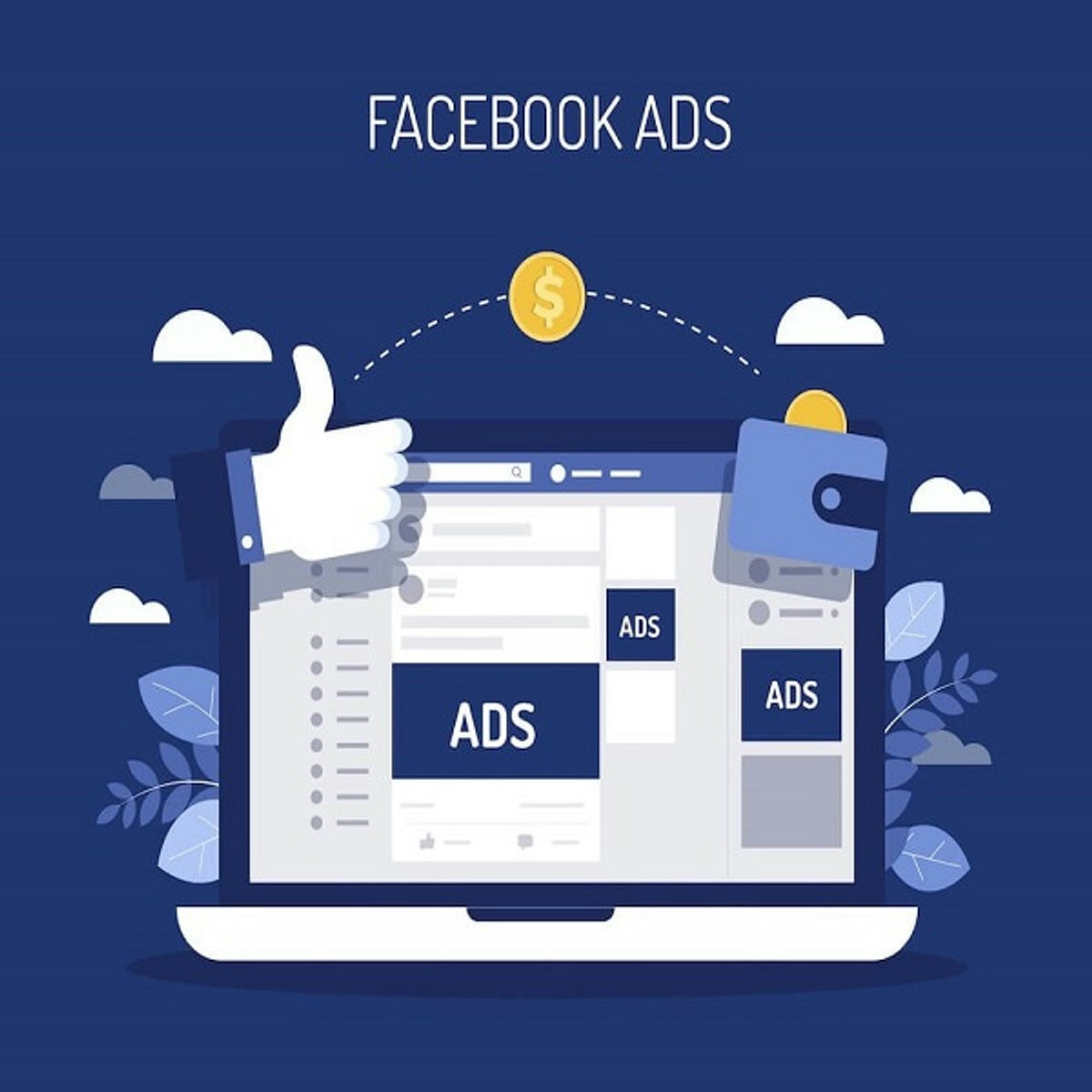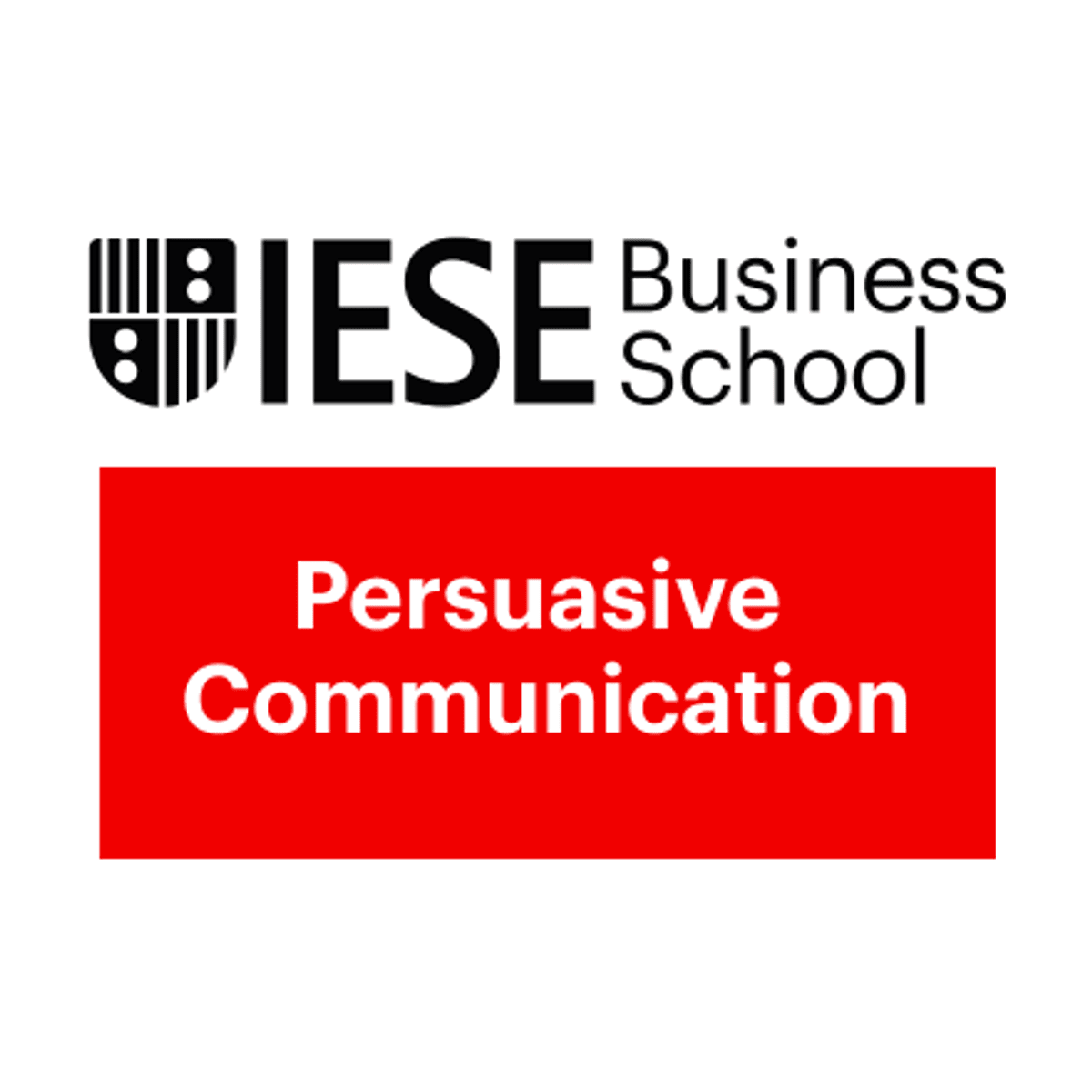Advertising Manager
Advertising Manager: A Comprehensive Career Guide
An Advertising Manager plays a pivotal role in shaping a brand's public image and driving business growth. They are the strategic minds behind advertising campaigns, responsible for planning, directing, and coordinating efforts to create compelling messages that resonate with target audiences. Their work involves a blend of creativity, analytical thinking, and leadership to ensure campaigns meet objectives and deliver measurable results.
This career path offers the excitement of working in a dynamic, fast-paced environment where market trends and technologies constantly evolve. Advertising Managers get the satisfaction of seeing their strategies come to life, influencing consumer perception and contributing directly to an organization's success. It's a role that demands both artistic sensibility and sharp business acumen.
Introduction to Advertising Manager
What is an Advertising Manager?
At its core, the role of an Advertising Manager involves overseeing an organization's advertising activities. This includes developing campaign strategies, managing budgets, coordinating with creative teams or agencies, and analyzing campaign performance. They work to ensure that all advertising efforts align with the overall marketing goals and brand identity.
The primary objective is to capture audience attention and persuade them to take a desired action, whether it's purchasing a product, using a service, or adopting a certain viewpoint. This requires a deep understanding of consumer psychology, market trends, and the effectiveness of different advertising channels.
Success in this role often hinges on the ability to balance creative vision with data-driven decision-making. It's about crafting messages that are not only imaginative and engaging but also strategically sound and capable of generating a positive return on investment.
Where Do Advertising Managers Work?
Advertising Managers are employed across a wide spectrum of industries and organizational types. Many work within dedicated advertising agencies, where they handle campaigns for multiple clients, offering exposure to diverse brands and challenges.
Alternatively, numerous large corporations and organizations maintain in-house marketing and advertising departments. In these settings, managers focus deeply on promoting their own company's products or services, working closely with other internal departments like sales and product development.
Key sectors employing Advertising Managers include retail, technology, consumer packaged goods (CPG), finance, healthcare, entertainment, and non-profit organizations. The specific work environment can range from the high-energy, deadline-driven atmosphere of an agency to the more structured pace within a large corporation.
Advertising's Place in the Business World
Advertising is a crucial component of the broader field of marketing. While marketing encompasses the entire process of identifying customer needs and bringing a product or service to market, advertising focuses specifically on paid communication designed to inform or persuade.
Effective Advertising Managers collaborate closely with sales teams to ensure messaging supports sales objectives and that campaigns generate qualified leads. They also work hand-in-hand with brand management to maintain consistency in tone, visuals, and core messaging, reinforcing the overall brand identity across all communications.
Understanding these relationships is key. Advertising doesn't operate in a vacuum; it's an integral part of a larger ecosystem aimed at building brand value and driving business results.
Key Responsibilities of an Advertising Manager
Campaign Oversight and Strategy
A central duty is the strategic planning and oversight of advertising campaigns. This involves defining clear objectives, identifying the target audience, selecting the most effective mix of advertising channels (such as digital, print, television, radio, outdoor), and developing the core message.
Managers are responsible for guiding the execution of these campaigns from start to finish. They ensure that creative elements are developed on time, media placements are secured, and all components work together cohesively across different platforms.
Maintaining consistency and integration is vital. Whether it's a social media push, a television commercial, or a print ad, the messaging and branding must be aligned to create a unified and impactful campaign that resonates with the intended audience.
Budgeting and Financial Acumen
Managing advertising budgets is a critical responsibility. Advertising Managers must develop detailed budgets, forecasting costs for creative development, media buys, agency fees, and other campaign-related expenses.
Effective allocation of these funds across various channels and tactics is essential to maximize impact. This requires careful consideration of each channel's potential reach, cost-effectiveness, and alignment with campaign goals.
Beyond allocation, managers meticulously track spending against the budget and are accountable for demonstrating the campaign's financial performance. This involves calculating and analyzing the Return on Investment (ROI) to justify expenditures and inform future budget decisions.
These guided projects offer practical insights into managing advertising budgets and measuring return, key skills for any Advertising Manager.
Team and Agency Collaboration
Advertising campaigns are rarely solo efforts. Managers typically work closely with internal teams, including copywriters, graphic designers, videographers, and marketing specialists, providing direction and ensuring creative output aligns with the strategy.
Often, managers also oversee relationships with external partners, such as advertising agencies, media buying firms, production companies, or freelance talent. This involves selecting the right partners, negotiating contracts, providing clear briefs, and managing ongoing communication.
Strong collaboration and clear communication are paramount. Building positive working relationships, providing constructive feedback, and ensuring everyone is aligned towards common goals are essential for seamless campaign execution.
Performance Measurement and Analytics
Modern advertising relies heavily on data. Managers must track key performance indicators (KPIs) to gauge campaign effectiveness. Metrics might include impressions, click-through rates (CTR), conversion rates, cost per acquisition (CPA), and brand awareness lift.
They utilize various tools for this tracking, including web analytics platforms like Google Analytics, social media insights dashboards, dedicated ad platform reporting (e.g., Google Ads, Meta Ads), and sometimes specialized marketing attribution software.
The goal isn't just to report numbers but to derive actionable insights. Analyzing performance data allows managers to optimize campaigns in real-time, reallocate budgets, refine targeting, and make informed decisions to improve results and guide future strategies.
Understanding how to gather and analyze data is crucial for effective advertising. These courses provide insights into survey analysis and reporting tools relevant to marketing.
These resources offer foundational knowledge for understanding and applying key metrics in advertising and marketing.
Essential Skills for Advertising Managers
Analytical and Data-Driven Thinking
In today's digital landscape, intuition alone isn't enough. Advertising Managers need strong analytical skills to navigate the vast amounts of data generated by campaigns. Gut feelings are increasingly supplemented, if not replaced, by data-driven insights.
This involves interpreting performance reports, understanding the results of A/B tests, analyzing market research findings, and identifying trends. Comfort with numbers and statistical concepts is becoming increasingly important.
Data analysis directly informs critical decisions: which channels receive more budget, which audience segments to target, which creative elements resonate most, and how to optimize campaigns for better ROI. A data-driven mindset is essential for maximizing effectiveness and accountability.
Leadership and Collaboration
Advertising Managers often lead teams, whether internal staff or external agency partners. Effective leadership involves setting clear direction, motivating team members, delegating tasks appropriately, and fostering a collaborative environment.
Skills in conflict resolution, providing constructive feedback, and managing diverse personalities are crucial. They act as the central point of coordination, ensuring everyone works together efficiently towards the campaign goals.
Collaboration extends beyond the immediate advertising team. Managers must work effectively with colleagues in marketing, sales, product development, finance, and legal departments to ensure alignment and smooth execution of strategies across the organization.
This book provides valuable insights into leadership applicable to managing advertising teams and projects.
Digital Marketing Proficiency
The advertising world is increasingly digital. Proficiency in various digital marketing channels and platforms is no longer optional but essential. This includes understanding search engine marketing (SEM), social media advertising, display advertising, video advertising, and email marketing.
Managers need familiarity with major advertising platforms like Google Ads and Meta Ads (Facebook/Instagram), as well as potentially LinkedIn Ads, Twitter Ads, TikTok Ads, and others relevant to their target audience.
Understanding concepts like programmatic advertising (automated ad buying), search engine optimization (SEO) fundamentals, and analytics tools is also vital for navigating the complex digital ecosystem and making informed strategic decisions.
These courses cover essential digital advertising platforms and strategies, providing practical skills for managing modern campaigns.
Communication and Negotiation
Clear and persuasive communication is fundamental. Advertising Managers must effectively articulate strategies to stakeholders, present campaign results clearly, provide concise briefs to creative teams, and manage internal and external communications smoothly.
Negotiation skills come into play frequently, whether discussing rates with media vendors, defining scopes of work with agencies, or securing budgets internally. The ability to advocate for their team and campaigns effectively is crucial.
For those working in agencies, strong client management skills—building rapport, understanding client needs, managing expectations, and presenting work persuasively—are absolutely essential for success and client retention.
Effective communication and persuasion are core skills. These courses and book explore techniques for more impactful interactions.
Formal Education Pathways
Undergraduate Degrees
A bachelor's degree is generally the minimum educational requirement for entry into the advertising field, and often a prerequisite for management roles. Common and relevant fields of study include Marketing, Communications, Advertising, Business Administration, or related disciplines.
These programs typically provide a solid foundation in core business principles, marketing theory, consumer behavior, market research techniques, media planning, and communication strategies. This academic grounding helps aspiring managers understand the context in which advertising operates.
Coursework in areas like statistics, economics, psychology, sociology, and graphic design can also be highly beneficial, providing analytical skills, an understanding of human behavior, and an appreciation for the creative process involved in advertising.
Graduate Studies and Specializations
While not always mandatory, an advanced degree can accelerate career progression, particularly towards senior leadership positions. A Master of Business Administration (MBA) with a specialization in Marketing or Advertising is a popular choice, offering broader business acumen alongside specialized knowledge.
Other relevant graduate programs include Master's degrees in Integrated Marketing Communications (IMC), Digital Marketing, Advertising, or Communication Management. These programs offer deeper dives into specific areas of the field.
Pursuing a master's degree can provide advanced strategic frameworks, enhance analytical capabilities, offer valuable networking opportunities with peers and faculty, and signal a strong commitment to the field, potentially opening doors to higher-level roles.
Certifications and Continuous Learning
The advertising landscape changes rapidly due to evolving technologies, new platforms, and shifting consumer behaviors. Therefore, continuous learning is not just beneficial, it's essential for staying relevant and effective throughout one's career.
Industry-recognized certifications can demonstrate specific platform expertise and commitment to professional development. Popular examples include the Google Ads Certification suite, Meta Blueprint Certification (for Facebook/Instagram), HubSpot certifications (especially for inbound marketing), and others related to specific analytics or marketing automation platforms.
Online courses, webinars, industry conferences, and publications are invaluable resources for staying updated. Platforms like OpenCourser offer a vast catalog to explore specific skills or broader concepts. Checking resources like the OpenCourser Learner's Guide can help structure your self-learning journey.
Internships and Early Experience
Practical experience is highly valued in the advertising industry. Internships undertaken during or shortly after completing formal education provide invaluable real-world exposure that complements academic learning.
Internships allow aspiring professionals to apply theoretical knowledge, learn industry tools and processes, build a professional network, and develop tangible work samples for their portfolio. This hands-on experience is often a key differentiator when applying for entry-level positions.
Students are strongly encouraged to actively seek internship opportunities at advertising agencies, media companies, or within the marketing departments of corporations. Even short-term projects or volunteer work related to advertising can provide beneficial experience.
Career Progression for Advertising Managers
Starting the Journey
Most Advertising Managers don't start in a management role. Common entry points include positions like Advertising Assistant, Marketing Coordinator, Media Planner Assistant, Traffic Coordinator, Digital Marketing Specialist, or, particularly in agencies, Junior Account Executive.
These initial roles provide crucial foundational experience. Responsibilities might involve supporting senior staff, executing specific tasks within campaigns (like managing social media posts or setting up digital ads), conducting research, coordinating logistics, or handling administrative duties.
Early career professionals should focus on mastering their assigned tasks, demonstrating reliability, showing initiative, developing specific channel expertise (like social media or search ads), and honing their analytical and communication skills to build a strong base for advancement.
Climbing the Ladder
With proven performance and experience, individuals can progress to roles like Senior Specialist, Assistant Advertising Manager, or directly to Advertising Manager. Promotion often requires demonstrating a combination of skills and achievements.
Key criteria typically include a track record of managing successful campaigns (or significant parts of them), handling budget responsibilities effectively, showing leadership potential or experience managing junior staff/interns, possessing strong analytical abilities, and exhibiting strategic thinking.
The timeline varies, but reaching an Advertising Manager position usually requires several years (e.g., 3-7 years) of relevant experience. According to Bureau of Labor Statistics data, the field shows steady growth, and compensation generally increases significantly with experience and managerial responsibility.
Reaching Executive Levels
For high-achieving Advertising Managers, further advancement opportunities exist. Potential next steps include roles like Director of Advertising, Group Advertising Manager, VP of Marketing, or even Chief Marketing Officer (CMO), depending on the organization's structure.
These executive positions involve significantly broader strategic oversight, management of larger teams and budgets, and greater responsibility for the overall marketing direction and performance of the company or division. They require a deep understanding of the business as a whole.
Transitioning to executive leadership typically demands extensive industry experience (often 10-15+ years), a consistent history of delivering strong results, exceptional leadership and strategic planning capabilities, and often, an advanced degree like an MBA.
Alternative Paths
The traditional corporate or agency ladder isn't the only path. Experienced Advertising Managers possess valuable skills that can be leveraged in other ways. Many transition into independent consulting or freelance work.
This offers greater flexibility, autonomy, and potentially the opportunity to work on a diverse range of projects. However, it also requires strong self-discipline, business development skills to find clients, and managing the inherent instability of freelance income.
Another alternative is entrepreneurship. Some managers leverage their expertise and network to launch their own specialized advertising agency, focusing on a particular niche, industry, or service offering.
Advertising Manager in the Digital Age
AI and Automation
Artificial Intelligence (AI) is rapidly reshaping advertising. AI algorithms power sophisticated ad targeting, dynamic creative optimization (DCO), predictive analytics for campaign performance, and personalized customer experiences at scale. Understanding AI in advertising is becoming crucial.
Automation tools are also increasingly prevalent, handling tasks that were once manual, such as programmatic ad bidding, performance reporting, budget pacing, and even generating basic ad copy or creative variations.
For Advertising Managers, this means a shift in focus. Less time is spent on manual execution and more on strategy, interpreting AI-driven insights, overseeing automated systems, and ensuring ethical use of these powerful technologies.
These courses explore the intersection of AI and marketing, providing insights into leveraging these tools effectively.
Navigating Privacy Regulations
Growing concerns about data privacy have led to significant regulations like the General Data Protection Regulation (GDPR) in Europe and the California Consumer Privacy Act (CCPA) in the US, with more likely to follow. These rules fundamentally impact how consumer data can be collected, stored, and used for advertising.
Advertising Managers must understand the implications of these regulations on practices like third-party cookie tracking, audience targeting, data sharing, and obtaining user consent. Non-compliance can result in hefty fines and reputational damage.
Staying informed about privacy laws and ensuring that all advertising activities adhere to both legal requirements and ethical best practices is now a critical aspect of the role. This includes working closely with legal teams and prioritizing transparency with consumers.
Emerging Channels and Trends
The media landscape is in constant flux. Advertising Managers need to continuously monitor and evaluate emerging channels and platforms where their target audiences might be spending time. Examples include short-form video platforms like TikTok, streaming services (Connected TV or CTV), podcast advertising, and the evolving world of influencer marketing.
Adapting strategies to incorporate promising new channels requires understanding their unique characteristics, audience demographics, ad formats, and measurement capabilities. Simply replicating old strategies on new platforms rarely works effectively.
This necessitates a commitment to lifelong learning. Managers must stay curious, experiment with new formats, and continuously refine their media mix to ensure campaigns remain relevant and impactful in a rapidly changing digital environment. According to research from McKinsey, adapting to these shifts is key for future growth.
These courses provide specific insights into newer platforms like TikTok and the important area of influencer marketing.
Global Opportunities and Challenges
Market Variations
Advertising is not a one-size-fits-all discipline, especially across international borders. Consumer preferences, media consumption habits, competitive landscapes, and regulatory environments can differ dramatically from one country or region to another.
An approach that succeeds in North America might fail in Asia or Europe. Factors like economic development levels, internet penetration rates, dominant social media platforms, and local holidays all influence campaign effectiveness.
Therefore, Advertising Managers involved in global campaigns must invest in thorough market research to understand these nuances before launching initiatives in new territories. Adapting strategy to local conditions is key.
This course offers foundational knowledge for navigating the complexities of global marketing.
Cultural Adaptation
Beyond market mechanics, cultural sensitivity is paramount in global advertising. Messages, imagery, humor, and even color choices can be interpreted very differently across cultures. What is acceptable or appealing in one culture might be offensive or meaningless in another.
Effective global advertising requires more than just translation; it demands localization – adapting the campaign's core message and creative execution to align with local cultural values, norms, and communication styles. Failure to do so can lead to embarrassing blunders and damage brand reputation.
Managers overseeing international campaigns need a strong appreciation for cultural diversity and must ensure their teams or agencies possess the necessary local insights to create culturally resonant advertising.
Understanding cultural nuances is critical for global campaigns. These courses delve into the psychological and multicultural aspects of international marketing.
Language and Logistics
Executing campaigns across multiple countries involves significant logistical challenges. Accurate, high-quality translation and localization of all advertising materials by native speakers familiar with marketing nuances are essential.
Managing international campaigns often requires coordinating with teams or agencies in different time zones, navigating diverse legal and regulatory requirements, and potentially dealing with currency fluctuations impacting budgets.
For managers considering expatriate roles, adapting to different business practices, communication styles, and workplace cultures presents both an opportunity for growth and a potential challenge. Strong cross-cultural communication skills are vital.
Ethical Considerations in Advertising Management
Truth and Transparency
A fundamental ethical principle in advertising is honesty. Advertisers have a responsibility to ensure their claims are truthful, accurate, and substantiated. Regulatory bodies, such as the Federal Trade Commission (FTC) in the United States, enforce laws against deceptive or misleading advertising practices.
Beyond avoiding outright falsehoods, ethical advertising avoids ambiguity, hidden fees, or manipulative tactics designed to mislead consumers. Transparency about sponsored content or influencer relationships is also increasingly important.
Maintaining consumer trust is crucial for long-term brand health. Advertising Managers must champion ethical standards within their teams and ensure campaigns are built on a foundation of honesty and respect for the audience.
Responsible Data Use
While data drives modern advertising, its collection and use raise significant ethical questions. Managers must ensure their data practices comply with privacy regulations like GDPR and CCPA, but ethical responsibility often extends beyond legal minimums.
This includes being transparent with consumers about what data is collected and how it's used, providing meaningful control over personal information, and avoiding overly intrusive tracking or profiling, especially concerning sensitive data categories.
Ethical data stewardship involves balancing the legitimate business need for data with a fundamental respect for individual privacy. Building advertising strategies that are both effective and privacy-respecting is a key challenge for modern managers.
Advertising's Societal Impact
Advertising doesn't just sell products; it shapes cultural norms and influences societal values. Managers should consider the broader impact of their campaigns. This includes avoiding the perpetuation of harmful stereotypes related to gender, race, age, or other characteristics.
There's a growing emphasis on promoting diversity and inclusion, both in the content of advertisements and within the advertising industry itself. Furthermore, considerations around responsible consumption and the environmental impact of producing and distributing advertising materials (e.g., sustainability in print production) are gaining traction.
Ethical managers strive to create campaigns that are not only effective but also socially responsible, contributing positively, or at least neutrally, to society.
This course and book touch upon ethical considerations in related fields like social media and sustainable marketing.
Frequently Asked Questions (FAQs)
Work Environment and Lifestyle
Q: What are the typical work hours and stress levels for an Advertising Manager?
A: The role can be demanding, often involving standard business hours plus additional time during peak campaign periods, product launches, or approaching deadlines. Stress levels can be high due to tight deadlines, budget pressures, and the need to deliver measurable results. Agency environments are often perceived as faster-paced than in-house roles, but both can be intense. However, the work is often dynamic and rewarding for those who thrive in such environments.
Agency vs. In-House Roles
Q: What are the main differences between working at an advertising agency versus in-house for a company?
A: Agency life typically involves working on multiple clients across potentially different industries, offering variety and broad exposure. The pace is often fast, and roles might be more specialized. In-house roles involve a deep focus on a single brand or company, allowing for strong product/industry knowledge and close collaboration with internal teams like sales and product development. The pace might be different, and the role may encompass a broader range of marketing activities beyond pure advertising.
Job Security
Q: How secure is a career as an Advertising Manager, especially during economic downturns?
A: Advertising and marketing budgets can be vulnerable during economic slowdowns, as companies may cut discretionary spending. This can impact job security, particularly in agencies that rely on client retainers. However, advertising remains a crucial function for businesses, especially digital advertising focused on measurable ROI. Managers with strong digital skills, analytical abilities, and a track record of delivering results tend to be more resilient. Adaptability and continuous skill development are key.
Remote Work
Q: Is it possible to work remotely as an Advertising Manager?
A: Yes, remote work has become increasingly feasible, especially for roles heavily focused on digital campaign management, strategy, and analytics. Many tasks can be performed effectively from a remote location. However, the role often involves significant collaboration with creative teams, agencies, and internal stakeholders, so some companies may prefer hybrid models or require occasional in-person meetings for strategic planning or team building.
Career Transitions
Q: Can I transition into advertising management from related fields like Public Relations or Sales?
A: Absolutely. Skills from related fields are often highly transferable. Public Relations professionals bring strong communication, writing, and media understanding. Sales professionals offer insights into customer motivation, persuasion, and achieving business targets. To transition successfully, focus on acquiring specific advertising knowledge, such as understanding ad platforms, media planning principles, campaign analytics, and creative processes. Online courses and certifications can be invaluable for bridging these gaps.
These resources provide context on related fields often involved in career transitions.
Lifelong Learning
Q: Is continuing education necessary throughout an Advertising Manager's career?
A: Yes, unequivocally. The advertising field evolves at a rapid pace due to technological advancements, the emergence of new platforms, changing consumer behaviors, and updated regulations. Continuous learning through industry publications, conferences, webinars, certifications, and online courses is essential to remain effective, competitive, and relevant. Embracing lifelong learning is a core requirement for long-term success in this dynamic career. Exploring Marketing courses on OpenCourser is a great way to stay current.
Conclusion
Becoming an Advertising Manager offers a career path filled with dynamic challenges and creative opportunities. It requires a unique blend of strategic thinking, analytical prowess, creative judgment, and strong leadership capabilities. You'll be at the forefront of shaping brand narratives and driving business outcomes.
The field demands adaptability and a commitment to continuous learning, as technologies, platforms, and consumer trends are always evolving. Success hinges on the ability to navigate this complexity while delivering measurable results and upholding ethical standards.
For those passionate about communication, psychology, strategy, and creativity, a career as an Advertising Manager can be immensely rewarding. It provides a platform to make a tangible impact on brands and businesses. Resources like OpenCourser can support your journey in acquiring the necessary skills and knowledge for this exciting field.
















